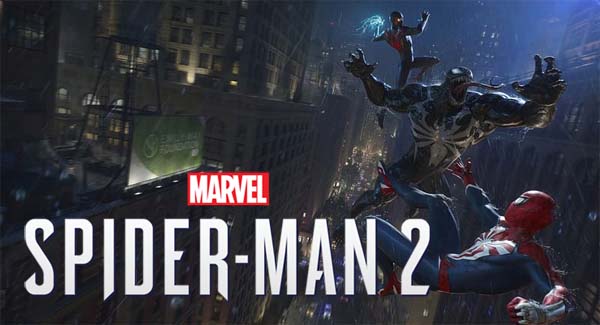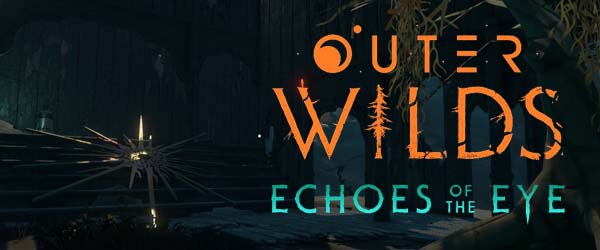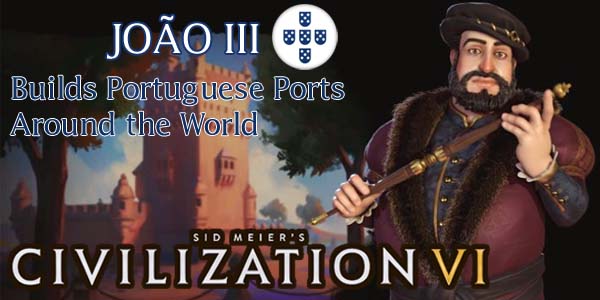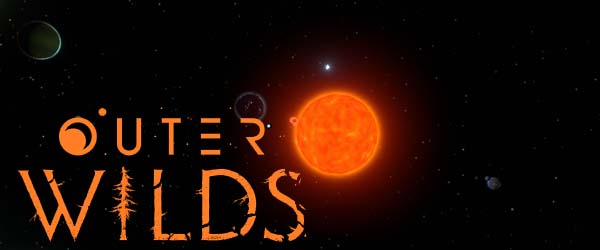
I'm not going to hold back on spoilers in this review, so read on at your own risk. If you want my non-spoiler opinion of the game (and didn't already get it from the grade above): it's good. It's not the watershed, lightning-in-a-bottle experience like the first game was though. It makes some smart changes, including some that seem to be based directly on feedback from the first game. But it also undercuts some of those smart changes with other changes and additions that aren't so smart. Bottom line though: if you liked the first game (and who didn't?), then you'll almost certainly also like this sequel.
I always get a little bit worried whenever an adaptation of Spider-Man decides to adapt the Venom storyline. It is usually where an adaptation goes off the rails. And even if it manages to stay on the rails, it's usually one of (if not the) weakest storyline of the adaptation. Whether it's Sam Raimi being forced by Sony to write the black suit and Venom into his 3rd Spider-Man movie, Spectacular Spider-Man depicting Peter and Eddie Brock as childhood friends, or Web of Shadows just being completely bonkers from start to finish, the appearance of the black suit always makes me nervous. Honestly, I think the 90's Animated Series is the only adaptation of Spider-Man that has ever hit the black suit and Venom storyline out of the park. It's Saturday morning cartoon nature means it completely fumbled the ball when it came time for Carnage though...
The black suit and Venom storylines is where a lot of Spider-Man adaptations go off the rails.
Surprisingly, Insomniac's take on the symbiote storyline takes a lot of inspiration from other Spider-Man adaptations, almost as if they think they can take poorly-received Venom storylines and improve on them. It starts off with the Sandman as a prologue villain before setting Harry Osborne up for a turn towards villainy, which closely mirrors Sam Raimi's Spider-Man 3. Then it turns Harry Osborne into Venom, as in the Ultimate Spider-Man cartoon, before basically turning into Web Of Shadows in the final act. The black suit itself also changes over time to reflect how close it is to taking over Peter's mind, which is an idea introduced in Spectacular Spider-Man. Also, the symbiote is a cure for cancer, and Venom's host being a childhood friend of Peter's are both borrowed from the Ultimate Spider-Man comics (and the Ultimate video game).
So yeah, a lot of Marvel's Spider-Man 2 resembles other adaptations of the Venom storyline, but yet it's still all put together in a way that feels original and works fairly well. It's still nowhere near as good as the Animated Series' Venom arc though, because Spider-Man 2's story and plotting is far from perfect.
[More]
8757551a-5263-46c0-90a4-659d55befe69|0|.0
Tags:Spider-Man, Marvel's Spider-Man 2, Marvel Comics, Insomniac Games, Sony, PlayStation 5, Peter Parker, Miles Morales, Harry Osborn, Norman Osborn, symbiote, Venom, Kraven the Hunter, Curt Connors, the Lizard, cancer, open world, exploration, web-swinging, New York, Manhattan, Queens, Brooklyn, Coney Island

When I played it last year (after waiting over a year for its timed Epic Store exclusivity to end), Outer Wilds quickly became one of my favorite games ever due to its innovative sci-fi, exploratory gameplay in its dynamic sandbox solar system full of interesting places that are genuinely worth exploring. It was a compelling sci-fi game about the nature of science and the desire to find out place in the universe. It was also a compelling player-driven mystery game that doesn't hold the player's hand and which provides genuine "eureka!" moments.
I wasn't expecting an expansion because the game seemed so perfect and self-contained that I struggled to even think of what could be included in an expansion. Would they add more planets to the solar system? Would it be a stand-alone prequel with the player playing as one of the extinct Nomai?
But I sure as hell was not going to pass up an excuse to revisit Timber Hearth!
I wasn't going to pass up an excuse to revisit Timber Hearth!
River rafting around the world
One of my favorite things about Outer Wilds is its open-ended exploration of the hand-crafted solar system. Each world is a little puzzle box for the player to unlock, with the solutions to every puzzle involving some sci-fi physics concept that the player has to learn and apply.
The puzzles of Echoes of the Eye don't seem to have that same sci-fi quality to them. Most puzzles involve the use of light, and feel like they could be puzzles in any earthbound adventure or fantasy setting. I just point flashlights at things to trigger mechanisms, turn lights off or on to trigger secret passageways, or turn off my source of light to sneak past photo-sensitive sentries in the dark. I guess I should praise the puzzle design for never falling back on the tried-and-true (yet rote) method of reflecting light off mirrors or through prisms. The actual puzzles are a bit more clever than this, but I just don't find it to be a very engaging or interesting gimmick, especially compared to how novel and creative the core Outer Wilds puzzle box is.
The use of light as the instrument for most interactions with Echoes of the Eye seems to be the result of a concerted effort by the developers to use base game mechanics that are under-utilized in the base game, such as the flashlight and ability to nap at bonfires. The puzzles just lack that sense of awe and discovery that comes with progressing in the base game.
Echoes of the Eye starts off strong with solving a space-based mystery.
Some of the late puzzles do start to embrace Outer Wilds's sci-fi nature. They hide some very fun and interesting surprises that really mess with the player's perception of reality in a very video-game-meta sort of way. But they are so esoteric that the game almost has to literally tell the player what to do. It's like "summoning the tornado in Simon's Quest" levels of esoteric at times.
Honestly, I think the single best puzzle in the game is the one that the player has to solve just to get access to the DLC! It's also the most "Outer Wilds" feeling puzzle in the game. The developers managed to cleverly hide the DLC in plain sight, as if it had been there all along.
The opening for the DLC tasks the player with finding a remote satellite and solving a simple puzzle involving it. Then the expansion treats the player with the awe-inspiring discovery of a massive hidden world that makes up the expansion's primary setting. After that, however, everything feels like pretty typical adventure game stuff. Instead of planet-hopping in a tiny space capsule, I find myself white-water rafting and watching home movies on slide projectors. Later on, there's some horror-adjacent exploration of dark spaces with just a flashlight, and even a little bit of hide-and-seek. Again, it's nothing I haven't seen in a hundred other indie games.
[More]
15313440-eb6a-44bf-a4ea-2d4d369d1f4e|0|.0
Tags:Outer Wilds, Echoes of the Eye, Steam, PC, Epic Game Store, science fiction, mystery, exploration, open world, Eye of the Universe, solar system, space, ring world

Firaxis has released the final "New Frontiers" update for Civilization VI. This update from March 2021 includes the new civilization Portugal, lead by João III.
If Firaxis decides to launch a second "New Frontiers" season, I will continue to write guides for the new civilizations and leaders. I will also put up polls on Patreon to let my Patrons decide which civ or leader to cover first (if Firaxis gives enough advance notice).

If "New Fontiers" is the end of the life cycle of Civilization VI, then don't fret. If I get enough interest from my Patrons, I'll also write guides for the "New Frontiers" game modes, or go back and create / update guides for legacy leaders. We also have new games such as Old World and Humankind coming out. I'll be playign both games when they release on Steam, and can also write guides for those games, if my supporters ask for it.
Portugal rose to prominence during the "Age of Discovery" in the 15th and 16th centuries, exploring the world and becoming the first global maritime empire. It established colonies and/or outposts in Brazil, Africa, India, and east Asia, it monopolized the spice trade, and was responsible for the formalization of the division of the globe into hemispheres. Portugal's dominion was short-lived however. A devastating earthquake in Lisbon in 1755, followed by occupation by Napoleonic France, and the eventual independence of Brazil combined to collapse the Portuguese maritime empire.

Portugal's maritime empire was laregely secured by King João III "The Pious" during his reign in the first half of the 16th century. João III established the first European colonies in Brazil and began importing Brazilwood into Europe, which was popular for creating red dyes. He was considered a scholar, humanist, and diplomat who supported the arts, granted scholarships to foreign universities, and remained neutral in wars between other European powers. But history is never so black-and-white, and João III is no exception. He also imported South American slaves into Europe from Brazil, and he boosted Portugal's relationship with the Vatican by allowing the Inquisition to establish itself in Portugal.
DISCLAIMER:
Civilization VI is still a "living game". Strategies for the game (and for specific leaders and civs) may change as Firaxis applies balance patches, introduces new features, or expands the game through further DLC or expansion packs, or as the Civ community discovers new strategies or exploits. As such, the following strategy guide may change from time to time. I will try to keep it up-to-date, and will make notations whenever changes are made. I'll also post links in the official 2K forums and CivFanatics, where I'll also report any changes made. If possible and practical, I will try to retain the original content of the strategy for posterity.
I welcome any feedback or suggestions that readers wish to offer. Feel free to post on the linked forums, or by posting a comment at the bottom of the page.
This guide is up to date as of the release of the [final] "New Frontiers" April 2021 Update (ver. 1.0.12.9)
João III explores the map to meet all other civilizations and city states, and will seek to establish peaceful trade relations with all of them, including constructing trade infrastructure in those other civilizations' cities. [More]
2a321222-ca59-47b4-8957-6177b584e9a1|0|.0
Tags:Sid Meier's Civilization, Civilization VI, Portugal, Portuguese, Joao III, casa da India, porta do cerco, navigation school, nau, caravel, feitoria, navigator's legacy, campus, navy, trade route, exploration, diplomacy, first contact

I refuse to give money to Epic,
and waited for Steam release.
Outer Wilds was one of my most anticipated games in 2019. As such, it was immensely disappointing that it became a timed exclusive for the Epic Games Store. I have a lot of issues with how Epic Games runs its business, and with the ethics (or lack thereof) of the company, and so I refuse to give them a single penny of my money. Our daughter plays Fortnite with her friends, and we're not going to disallow her from doing such (and besides, her socialization options were incredibly limited during the COVID-19 pandemic lockdown, and I think playing Fortnite stopped her from going stir crazy). But I've told her that the first time she asks me for money to buy V-Bucks, it will be the last time she plays the game.
I could have bought Outer Wilds on PS4 a year ago, but it just looked like the kind of game that would be better experienced on PC. I've been burned enough times by Bethesda RPGs that I'm always skeptical of a console's ability to adequately run a game with a world of the scope and comlexity of Outer Wilds. So I bit the bullet and waited the year for the game to release on Steam.
The opening screen recommended the use of a game pad, and I obligingly started using my PS4 controller on my second play session. And I've read that the game ran just fine on consoles. So I guess I could have spared myself the wait and just played on PS4 from the start. Ah well, live and learn.
Outer Wilds plays best with a controller anyway, so there was no need for me to pass up the console release.
Now to go back to finishing Fallout: New Vegas while I await the Steam release of The Outer Worlds...
Knowledge is your upgrade
Readers of my blog know that I'm not a huge fan of most open world games. The sandboxy nature of those games tends to lead to stagnant stories and worlds that feel ironically dead. They also tend to be full to the brim of monotonous copy-pasted content that becomes a drag to play.
Outer Wilds offers an entire solar system as an open world sandbox for you to explore. Granted, the scale of this solar system is considerably shrunk down in order to accommodate a game, such that an entire planet is about as big as a small neighborhood, and the different planets are only a few kilometers apart from one another. It's fine. It works well enough with the game's cartoony aesthetic style.
You have an entire toy solar system to play in.
What's important though, is how rich with detail and intrigue this world solar system is. Nothing looks or feels copy-pasted. Every nook and cranny of the map contains something new that you haven't seen before. On top of that, the map is positively dynamic! [More]
22d4dd2b-5bc2-4d04-90ed-eb6257d5218e|1|5.0
Tags:Outer Wilds, Steam, PC, Epic Games Store, timed exclusive, space, solar system, exploration, open world, nova, Nomai, comet, black hole, time loop, science fiction, mystery, No Man's Sky, Star Trek
I think the last few years have brought us to a bit of an inflection point for open world video games -- which I feel have been in kind of a rut for the better part of the last decade. Long-time readers of my personal blog will probably be very familiar with my complaints. The two core complaints that I've had with this particular game design paradigm are:
- That the map itself rarely feels meaningful as a game space, and instead serves primarily as a convoluted mission-select screen full of time-wasting filler content.
- That the sandboxy nature of the game design means that the world and narrative often feel stagnant (as if in a kind of "limbo").
This blog is mostly a transcript of a YouTube video that I posted.
These problems can be traced back at least to 2001's Grand Theft Auto III, which set many of the conventions of open world games for the next two decades. Companies from Ubisoft to Bethesda, and many others, would copy GTAIII's structure of going to a location on the map to trigger a mission in an aggressively linear, cinematic story, while spending free time on time-wasting filler content that did nothing to move the story forward.
Grand Theft Auto III set many of the standards
for open world games over the past 20 years.
Aside from Ubisoft's Assassin's Creed and Far Cry series, these problems have been present to varying degrees in everything from Skyrim to The Saboteur to Mad Max to Just Cause to The Amazing Spider-Man to Fallout 4 to Metal Gear Solid V, and many more. It started getting to the point that when I would see a game advertise the size of its map, I'd roll my eyes and lose interest. "Great, that's just more wasting my time walking from place to place with nothing meaningful or interesting or challenging to do."
Where you are on the map, where you're going, and how you get there was almost completely irrelevant in these games, which made the map itself (no matter how big and scenic it might be) feel mostly irrelevant. In fact, some games started introducing mechanics that let you bypass the map entirely by letting you fly, glide, or zipline to points of interest without having to engage with the space in between. In the case of Metal Gear Solid V's Afghanistan map, the roads are lined with sheer cliffs, funneling the player along linear paths from enemy outpost to enemy outpost, with practically nothing for you to do in the space between outposts. Even though the stealth action at those outposts was some of the best in the series, I couldn't help but think that Snake Eater provided a much more fulfilling experience of living within an open-ended game world.
I would roll my eyes whenever a game advertised the size of its map or hours of content.
The maps themselves weren't playspaces anymore; they were just the spaces in between towns, dungeons, and set pieces where the actual gameplay would take place. Just point in the direction of a waypoint and walk in a straight line, stopping every minute or so to pick up an umpteenth collectible, or climb an umpteenth tower, or sneak into an umpteenth enemy base and kill the umpteenth recycled mini-boss. Stop me if you've done all this before... A majority of the time with the game was just travelling around the map without any engagement in any gameplay systems or mechanics or strategies, and then playing some rote, recycled filler content to pass the time. And as the maps got bigger and bigger, the filler content just kept multiplying.
...
[More]
abf2cb68-ef06-4e1e-aa8a-4f1527dce74f|1|5.0
Tags:open world, sandbox, game design, map, traversal, obstacle, travel, exploration, cartography, geography, narrative, ludonarrative, Ubisoft, Bethesda, Assassin's Creed, Assassin's Creed IV: Black Flag, Final Fantasy XV, The Legend of Zelda: Breath of the Wild, Red Dead Redemption 2, Marvel's Spider-Man, Firewatch, Miasmata, Sunset Overdrive, Death Stranding, Shadow of the Colossus, Resident Evil
|

| 12 | | | | | | | 60 | | 11 | | | | | | | 55 | | 10 | | | | | | | 50 | | 09 | | | | | | | 45 | | 08 | | | | | | | 40 | | 07 | | | | | | | 35 | | 06 | | | | | | | 30 | | 05 | | | | | | | 25 | | 04 | | | | | | | 20 | | 03 | | | | | | | 15 | | 02 | | | | | | | 10 | | 01 | | | | | | | 05 |
|